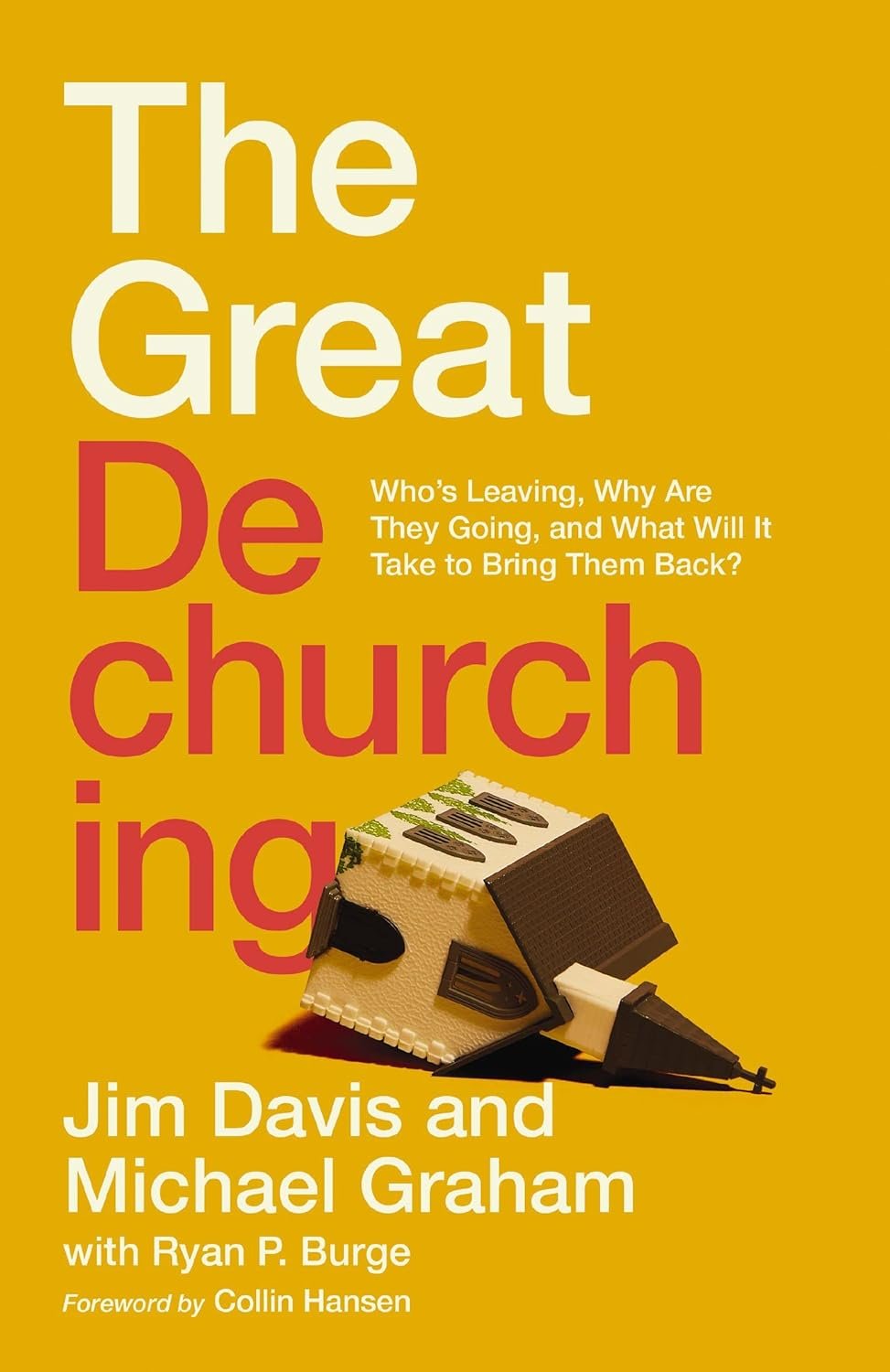Six Issues of and Six Messages for the Dechurched
Casualties of the church. You read that right. Though many have casually dechurched—most often simply due to moving—there are some who have actively dechurched. They left the church by choice. The church hurt them. And we must seek to respond with lovingkindness.
Research reported inChapter 11 of The Great Dechurching: Who’s Leaving, Why They Are Leaving, and What Will It Take to Bring Them Back? considers six issues of the dechurched along with six messages for the dechurched.
The Political Issue: The Gospel Comes with an Ethic
“We know that many Americans have left the church because of political disagreements. They haven’t just left a church; they’ve left the church.” (166-167) 18% left for political disagreements with their church; 16% left for political disagreements with their pastor. Listening first. Seeking to understand. We must graciously ask if a secondary issue became primary? Or it may have been that their pastor was out of step with the Gospel ethic; that leads to our second consideration.
The Hurt Issue: You Don’t Have to Return to What You Left
14% of dechurched left because they felt unloved by their church. 22% left because they didn’t feel as if they fit in. Everyone deserves to be loved. Everyone wants to belong. It hurts when you are left out. When in dialogue with someone hurt by the church, we can grieve their loss as we demonstrate our love. We can ask them to consider that not all churches are the same; they can return to a different church or a different type of church.
The Streaming Issue: “Online Worship” is Not the Gathering
At 2022 Pew Research study shows 22% of Christians worship only online. The Great Dechurching research shows that number closer to 30%. Though we are thankful for the technology—most of us experienced it during COVID-19—it does not replace the gathering together of the Saints. We gather together as individuals; we need one another to function as and worship as a church. A corporate worship service is an experience of family, community, unity. We belong to one another.
The Abuse Issue: Blessed Are the Little Ones
The Catholic Church has faced thousands of priests who have abused thousands of children. A 2022 report in my own Southern Baptist Convention brought to light hundreds of cases of sexual abuse that were mishandled, covered up, and ignored. The safety of our children and the most vulnerable along with the abuse of office by pastors should be a concern for every church member. 7% of all dechurched and 12% of dechurched evangelicals left over their concerns with clergy sexual abuse. We must seek to make our churches the safest places for children and the vulnerable. We must seek to make them safe places for the abused and concerned as well.
The Isolation Issue: You Need the Church (and the Church Needs You)
11% of the dechurched left because church attendance was no longer convenient. That rose to 17% among dechurched evangelicals. As we consider such dechurched people our approach is simple: love them and invite them. When people feel welcome and included, they want to belong. We need genuine relationships. We need one another. We need to make the time and spend the effort that others belong.
The Belief Issue: The Gospel is Good News
A change in belief is the single largest reason people left the church. 23% of dechurched did so because they no longer believe as they did before. Maybe their theology changed, maybe they no longer match the biblical morality of the church, or maybe their abuse by others led to a change of belief. No matter what happened, we all do well to remember that we are sinners in need of a Savior. Jesus, our Savior, died to forgive our sins and restore our brokenness. No matter what it is. God loves you. No matter what.
Practicing the six types of awareness from our last post, Reasons for Hope Amidst the Great Dechurching, would be most helpful in addressing the six concerns above. If you are just joining us, you may want to read our introductory post, The Great Dechurching, and the second post in this series, Who are the Dechurched?, that looks more deeply into the statistics.
To subscribe to this Serving Churches blog via RSS, click here.
Please comment, like, and share this post. Thank you!



